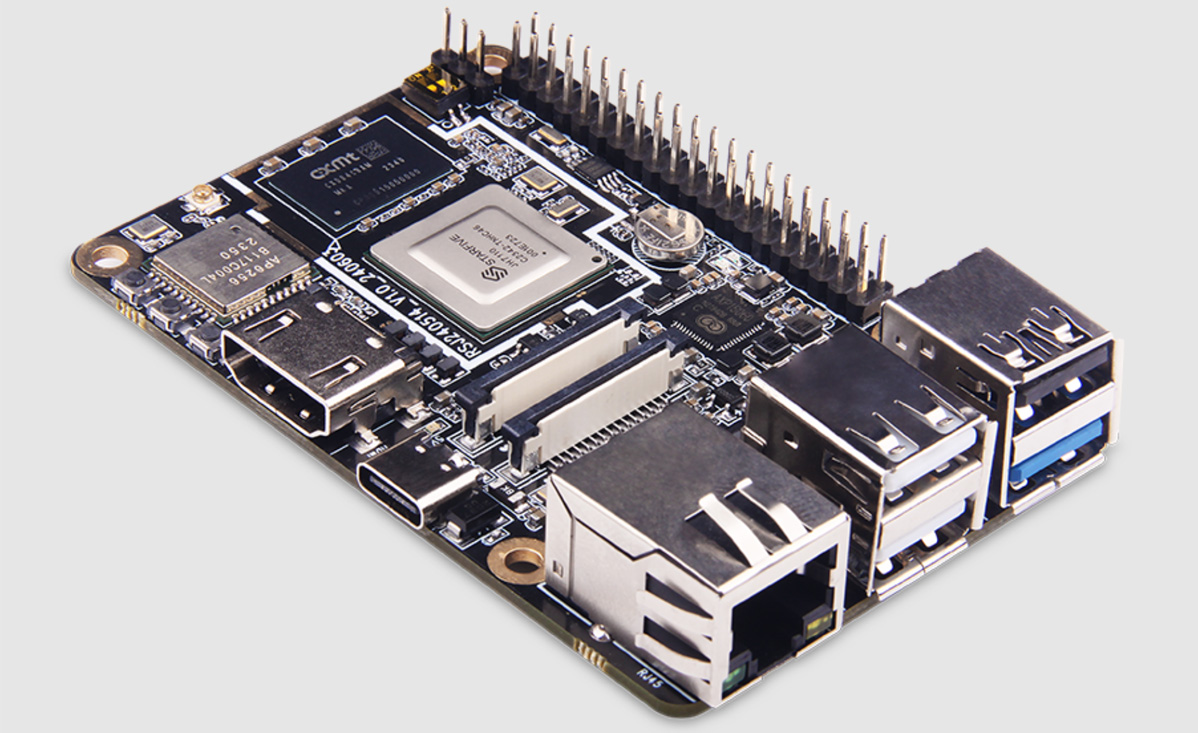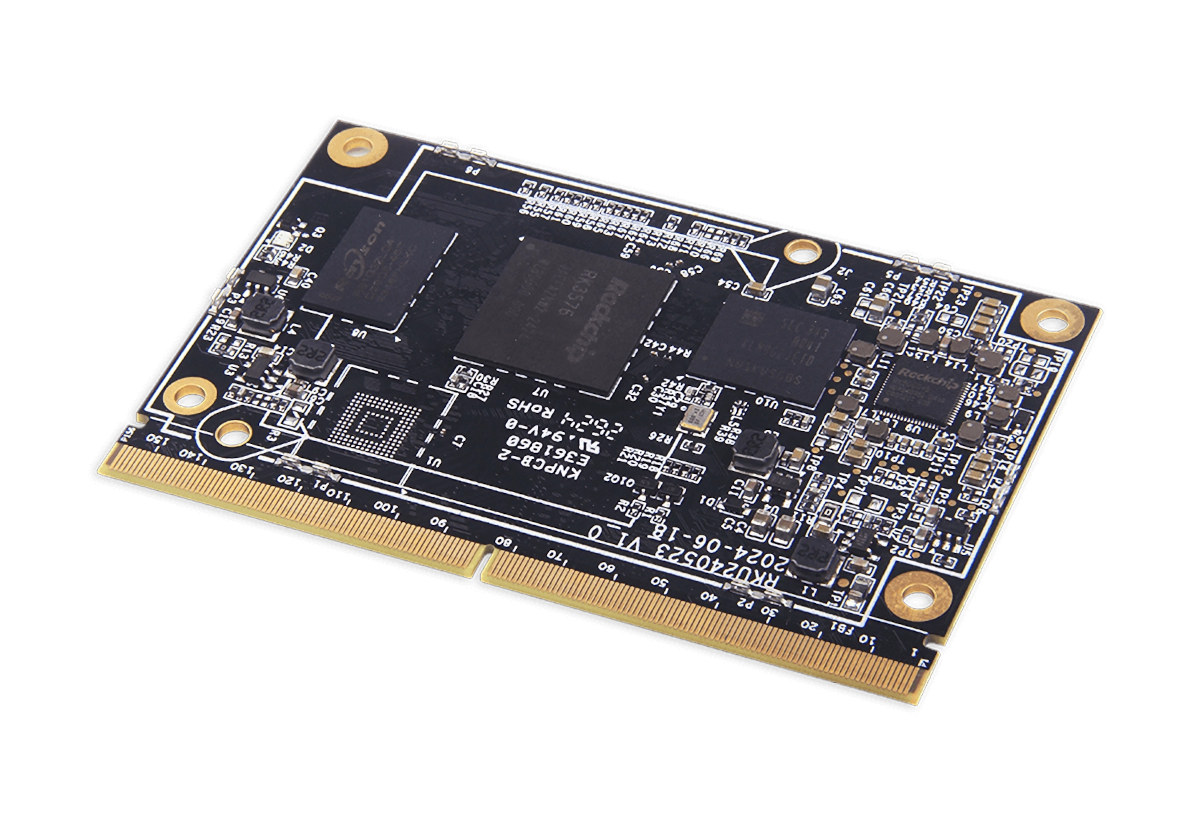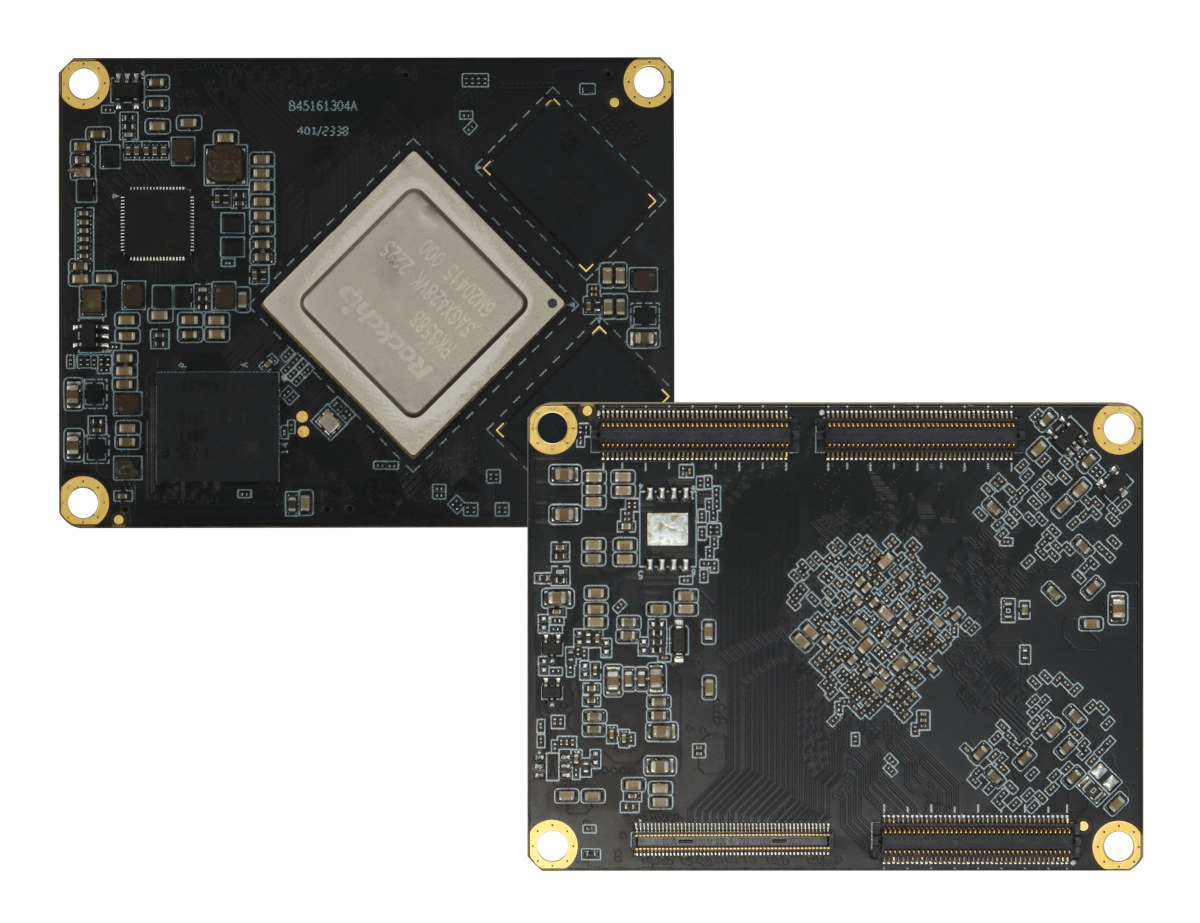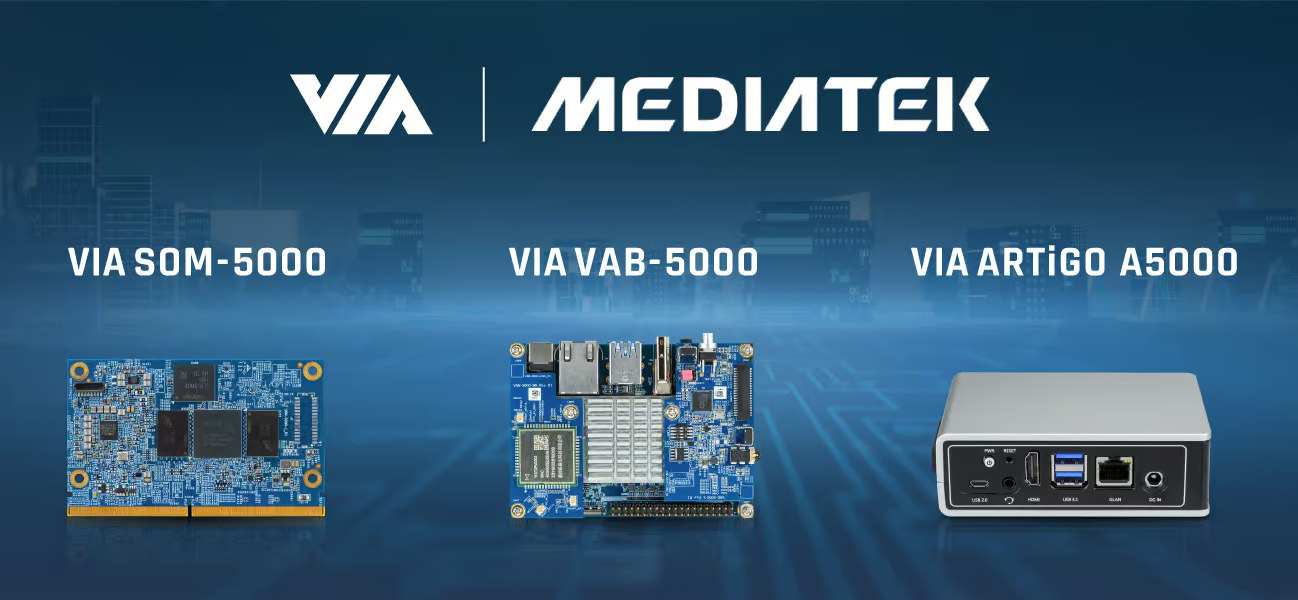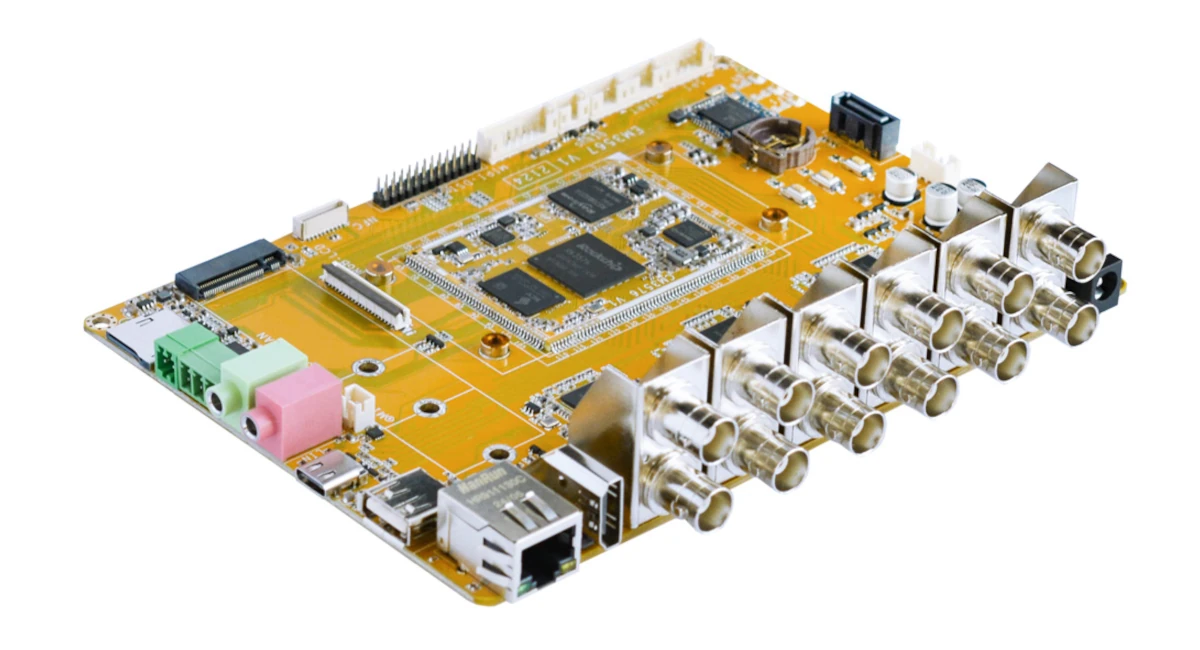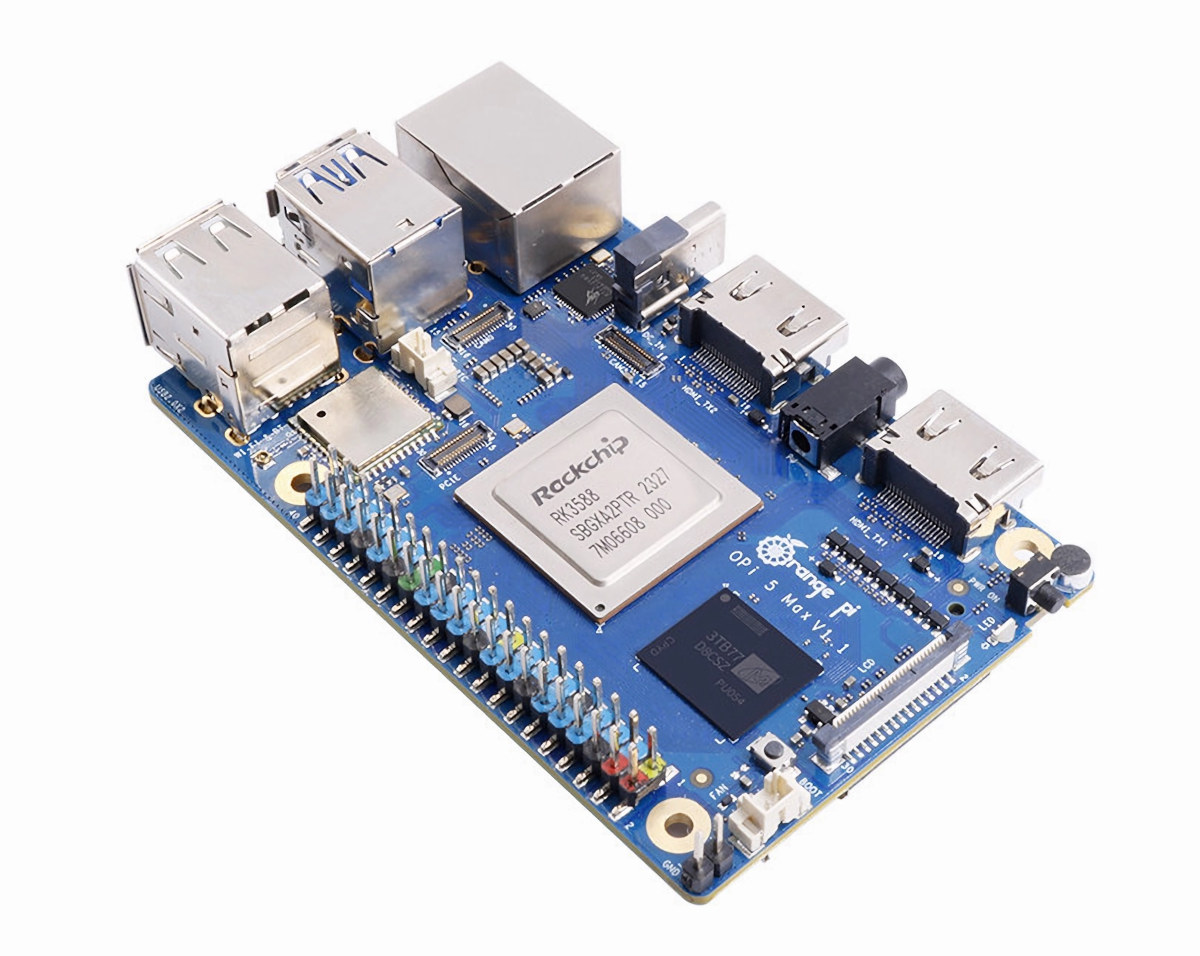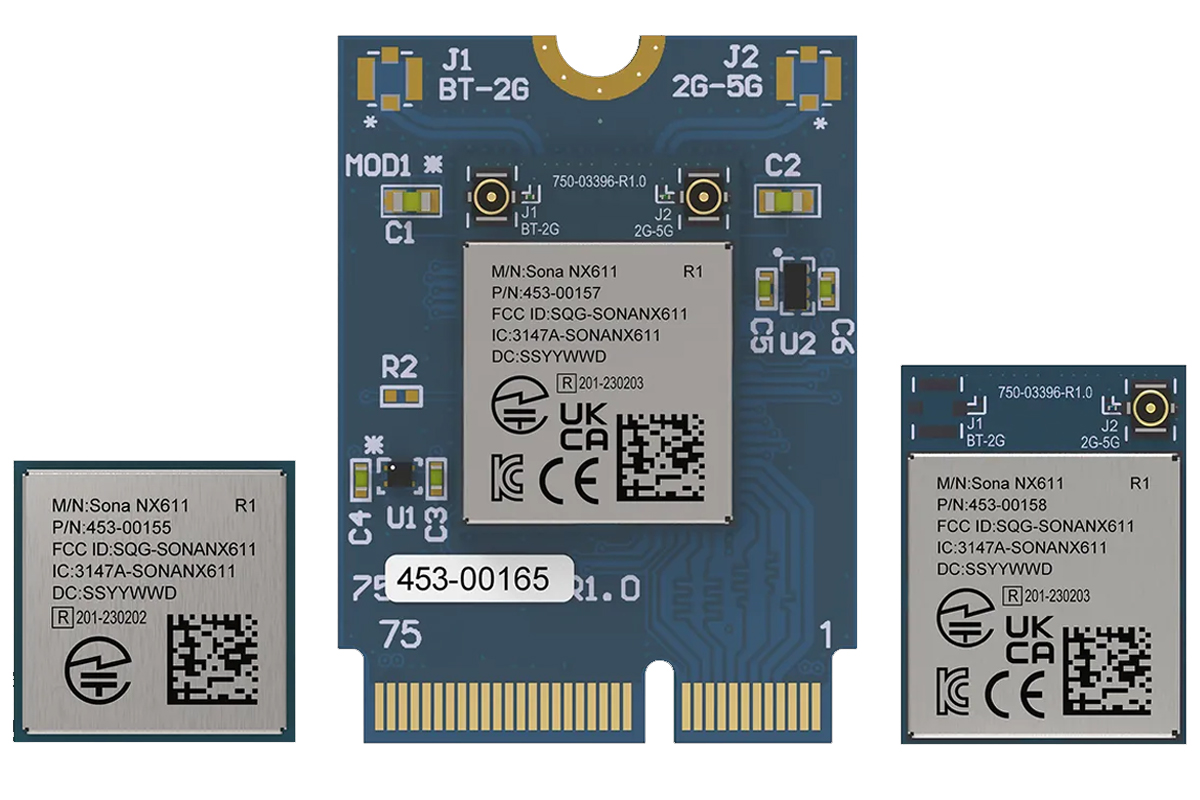Geniatech XPI-7110 is a RISC-V single-board computer (SBC) built on StarFive JH7110 with a form factor similar to that of a Raspberry Pi 3 and equipped with up to 8GB of RAM, 256GB of eMMC storage. It comes with various I/O options including USB ports, HDMI 2.0, GbE Ethernet, Wi-Fi/BT, GPIO, camera, display, and much more. The company also mentions that the board will be available in both commercial and industrial variants and will include a 10+ year lifecycle The new Geniatech board is very similar to the Milk-V Mars that we wrote about a few months ago. Additionally, we have written about PineTab-V, Pine64 Star64 SBC, and Milk-V Meles SBC all of which are built around the StarFive JH7110 or T-Head TH1520 RISC-V SoC, feel free to check those out if you are interested in the topic. Geniatech XPI-7110 SBC specifications: SoC – StarFive JH7110 CPU – Quad-core RISC-V processor […]
Geniatech SOM-3576 – A Rockchip RK3576 system-on-module with a 314-pin MXM 3.0 edge connector
Geniatech SOM-3576 is another system-on-module (SoM) powered by Rockchip RK3576 octa-core Cortex-A72/A53 AI SoC but with a 314-pin MXM 3.0 edge connector to expose I/Os. It follows other RK3576 SoMs like the Boardcon CM3576 with castellated edges and the Forlinx FET3576-C with board-to-board connectors. The SOM-3576 module supports up to 16GB RAM, and 256GB eMMC flash, and comes with a Rockchip PMIC. I can also see a footprint for 512GB or 1TB UFS storage as Firefly did on the Firefly ROC-RK3576-PC single board computer. Geniatech SOM-3576 specifications: SoC – Rockchip RK3576 CPU 4x Cortex-A72 cores at 2.3 GHz, 4x Cortex-A53 cores at 2.2 GHz Arm Cortex-M0 MCU at 400MHz GPU – ARM Mali-G52 MC3 GPU with support for OpenGL ES 1.1, 2.0, and 3.2, OpenCL up to 2.0, and Vulkan 1.1 NPU – 6 TOPS (INT8) AI accelerator with support for INT4/INT8/INT16/BF16/TF32 mixed operations. VPU Video Decoder – H.264, H.265, VP9, […]
Dusun DSOM-042R is a Rockchip RK3588M system-on-module for “automotive AIoT” applications
Dusun DSOM-042R is a system-on-module based on Rockchip RK3588M automotive-grade AI SoC with 8GB RAM and 128GB eMMC flash, capable of operating in the -40°C to 85°C temperature range, and fitted with four high-density connected exposes the many interfaces from the octa-core Cortex-A76/A55 processor. We first found out about the RK3588M SoC last year with the Firefly AIO-3588MQ board also comprised of a system-on-module and carrier board with support for up to sixteen cameras and up to six Full HD displays to drive the car dashboard, in-vehicle infotainment, a digital rearview mirror, headrest monitors, ADAS system, and more. We hadn’t noticed other manufacturers launch a product with the automotive-grade RK3588M, and the DusunIoT DSOM-042R offers another option. Dusun RK3588M SoM specifications: SoC – Rockchip RK3588M octa-core processor with CPU – 4x Cortex-A76 cores @ up to 2.1 GHz, 4x Cortex-A55 cores @ up to 1.7 GHz (frequencies TBC) GPU – […]
VIA launches MediaTek Genio 700 SMARC SoM, Pico-ITX SBC, and fanless Edge AI embedded system
VIA Technologies has launched three new Edge AI solutions based on the MediaTek Genio 700 mid-range Cortex-A78/A55 AI SoC with the SOM-5000 SMARC 2.1.1 system-on-module, VAB-5000 single board computer (SBC), and ARTiGO A5000 fanless embedded system. All three platforms come with 4GB or 8GB LPDDR4 memory, 16GB eMMC flash, gigabit Ethernet, video interfaces, and camera inputs, and are designed for intelligent edge computing across a range of industrial, commercial, and consumer applications. VIA SOM-5000 system-on-module Specifications: SoC – MediaTek Genio 700 (MT8390) CPU – Octa-core processor with 2x Cortex-A78 cores @ up to 2.2 GHz, 6x Cortex-A55 cores @ up to 2.0 GHz GPU – Arm Mali-G57 MC3 GPU with support for OpenGL ES 1.1/2.0/3.2, OpenCL ES 2.2, and Vulkan 1.0/1.1 APIs VPU Encoding up to 4Kp30 with H.265/HEVC or H.264 Decoding up to 4Kp75, AV1, VP9, HEVC, H.264 codecs supported AI accelerator – Mediatek DLA + VP6 with INT8, […]
Rockchip RK3576 castellated SoM powers development board with 12 analog camera inputs
Boardcon CM3576 is a system-on-module (SoM) Rockchip RK3576 with castellated holes that also powers the company’s EM3576 development board with 12 analog camera inputs among a range of other interfaces. We covered a few Rockchip RK3576 platforms in recent weeks including the Firefly ROC-RK3576-PC and Banana Pi BPI-M5 SBCs, and another system-on-module with the Forlinx FET3576-C with four 100-pin board-to-board connectors. The Boardcon CM3576 offers another option as a solderable SoM with castellated edges. Boardcon CM3576 SoM Specifications: SoC – Rockchip RK3576 CPU 4x Cortex-A72 cores at 2.3GHz, 4x Cortex-A53 cores at 2.2GHz Arm Cortex-M0 MCU at 400MHz GPU – ARM Mali-G52 MC3 GPU with support for OpenGL ES 1.1, 2.0, and 3.2, OpenCL up to 2.0, and Vulkan 1.1 NPU – 6 TOPS (INT8) AI accelerator with support for INT4/INT8/INT16/BF16/TF32 mixed operations. VPU Video Decoder – H.264, H.265, VP9, AV1, and AVS2 up to 8Kp30 or 4Kp120 Video Encoder – […]
Rockchip RK3588-powered Orange Pi 5 Max SBC features up to 16GB LPDDR5, 2.5GbE, onboard WiFi 6E and Bluetooth 5.3
Initially teased at the Orange Pi Developer Conference earlier this year, the Orange Pi 5 Max SBC powered by a Rockchip RK3588 SoC is now available on Amazon and Aliexpress for $95 and up with 8GB or 16GB LPDDR5, and support for eMMC flash modules or soldered on eMMC flash. A 4GB RAM version is also planned for $75. The Orange Pi 5 Max is basically a cost-down version of the Orange Pi 5 Plus with fewer interfaces (e.g. 1x 2.5GbE vs 2x 2.5GbE, no HDMI input, etc..), higher bandwidth LPDDR5 memory, onboard WiFi 6E and Bluetooth 5.3, and a smaller form factor between Pico-ITX and credit card size. Orange Pi 5 Max specifications: SoC – Rockchip RK3588 CPU – Octa-core processor with 4x Cortex-A76 cores @ up to 2.4 GHz, 4x Cortex-A55 cores @ up to 1.8 GHz Arm Mali-G610 MP4 GPU with support for OpenGL ES1.1/2.0/3.2, OpenCL 2.2, […]
Tuya Ivy smart flower pot monitors your plant’s inner feelings
No need to check the calendar, it’s not the first of April, and Tuya Ivy is indeed a smart WiFi-connected flower pot with a display that will report your plant’s thirst for water, need for more light, and even loneliness… Developed by PlantsIO, the Ivy smart flower pot is powered by an ESP32 wireless microcontroller connected to seven sensors including lighting and moisture sensors, and a display to show various faces. There’s also a USB-C port for power, a microSD card slot for data storage, some buttons, and a touch bar for user interaction. Tuya Ivy specifications: Wireless module – ESP32-WROVER-E SoC – ESP32 dual-core LX6 processor running at 240 MHz with 520KiB internal RAM Memory – 64 Mbit PSRAM (ESP PSRAM64H) Storage – 64Mbit SPI flash (XMC 25QH64CH10) Wireless – 2.4 GHz WiFi and Bluetooth 5.x (Only WiFi appears to be use) Storage – microSD card Display – Tri-color […]
Ezurio Sona NX611 – An NXP IW611-powered Wi-Fi 6 industrial IoT module
Ezurio, formerly Laird Connectivity, has announced the Sona NX611, a new Wi-Fi 6 module designed for industrial IoT applications. The module uses the NXP IW611 chipset and supports Wi-Fi 6 (802.11ax) and Bluetooth 5.4. It operates in the 2.4 GHz and 5 GHz bands, achieving data rates up to 600 Mbps, and can withstand industrial temperatures from -40°C to +85°C. The Sona NX611 comes in several form factors, including SiP (System-in-Package), M.2 1216 SMT, and M.2 2230 E-Key pluggable options. It is compatible with NXP processors and supports Ezurio’s Linux connectivity stack software and Android OS. The module is under development and is expected to be in mass production by September 2024. It will have global certifications like FCC, ISED, UKCA, CE, and Bluetooth SIG. Previously we have seen the IW611 and IW612 modules were used in the u-blox MAYA-W2 IoT module. We have also written about Laird RM126x LoRaWAN […]


